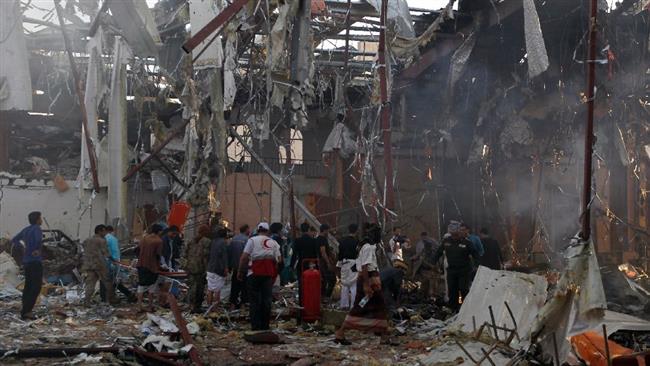
RNA - A statement by a Saudi investigative body said on Saturday the kingdom had carried out the strike based on what it called bad information.
Saudi warplanes attacked the hall where people were attending a wake for the father of Yemen's interior minister in Sana'a last Saturday.
Saudi officials initially said their aircraft had not carried out any attack on the Yemeni capital that day.
But on Saturday, the Joint Incidents Assessment Team (JIAT) said air operations officials failed to obtain approval for the strike from commanders in a violation of protocol, according to the statement carried by state news agency SPA.
"Because of non-compliance with coalition rules of engagement and procedures, and the issuing of incorrect information, a coalition aircraft wrongly targeted the location, resulting in civilian deaths and injuries," it said.
The JIAT called for a review of rules of engagement and compensation for the families of victims.
"Appropriate action... must be taken against those who caused the incident, and... compensation must be offered to the families of the victims,” it said.
The death toll from the Saudi attack was one of the largest in a single incident since March 2015, when Riyadh began its deadly military campaign in Yemen.
Sana’a Mayor Abdel Qader Hilal was among the victims of the bombing.
The incident prompted global condemnations, with Human Rights Watch denouncing the air raid as an apparent war crime.
An Omani aircraft landed in Sana'a Saturday to evacuate 115 of the most seriously wounded from the Saudi airstrike, a Yemeni official said.
Oman is the only Persian Gulf Arab state that is not part of the Saudi-led coalition against Yemen.
The Sana’a bombing was not the first attack on civilians by Saudi warplanes which have targeted busy markets, schools, weddings and hospitals over the past year, resulting in hundreds of deaths and thousands of injuries.
The United Nations Security Council has so far failed to agree on a statement condemning the October 8 Saudi airstrike.
847/940